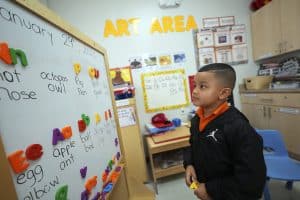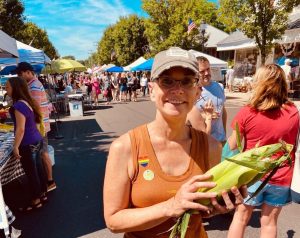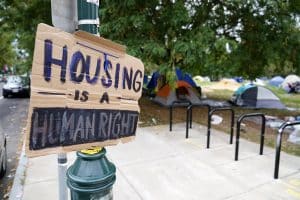In December 2022, there was one of many heated debates at a Central Bucks School Board meeting. This particular debate was related to the revision of Policy 321, which effectively banned pride flags. But, more than that, it contained language that could prohibit teachers from displaying family photos if they featured same sex relationships or using books that had characters in same sex relationships. Many felt the policy was written from a faulty assumption that teachers were inappropriately influencing students with respect to personal ideology rather than attempting to create spaces where all students experienced a sense of belonging. This policy, in its current form, is suspended while the Board reconsiders the best way forward.
In this article, however, I do not want to discuss that specific policy. Instead, I will discuss the larger issue of the importance of creating learning environments where students feel seen, heard, and valued. The benefits of creating such spaces are seen both in psychological and cognitive well-being – that is to say, children do better both interpersonally and academically.
Those of you who remember that meeting might remember that I asked what research on development or learning informed the policy.
I shared that there is a body of research on the culture of belonging and its benefits for children. When pushed, I dropped the citation, “Cobb & Krownapple”. It was not lost on me that to most people watching that would not mean much. But, as the accusation, “That’s your opinion” continued to be lobbed at me, I responded like an academic – with a citation. That said, the work of Floyd Cobb and John Krownapple is well known in educational circles. In fact, local districts like Radnor Twp School district used this work to frame discussions in their district. The work was brought to my attention by a former CBSD teacher/supervisor. There is a lot to be said about the importance of diversity, equity, and inclusion in schools. However, for some reason words like “equity” have been used as a device to sow division. So, I am going to reframe the conversation from the perspective of a “culture of belonging” instead.
Cobb and Krownapple argue that in order to achieve a culture of belonging, those in the context must experience dignity. Dignity is simply the experience of knowing you are worthy of respect. Educators must ask themselves: How do students know they are worthy of respect? What do students see, hear, and read in my classroom and in this school that let them know they are worthy of respect?
Teachers ought to consider the books on the required reading list, the books in the classroom or school library, the images in the texts, the posters on the wall, the perspectives of the lessons being learned – whose voices are heard, whose are silenced? I definitely have opinions based on my personal experiences and my children’s experiences – but, I won’t share them here. Instead, I invite you to take a moment to reflect on the classrooms and schools that you have experienced.
Another important aspect of building a culture of dignity is taking a hard look at the environment in the school and how it is experienced by those who are part of that context every day. Cobb and Krownapple suggest four types of environments that are defined by two variables – access (high to low) and belonging (conditional to unconditional). The ideal is full inclusion, high access and unconditional belonging. In that scenario, students, teachers, and administrators experience that they are the community. In many places, I would argue CBSD is one of them, there is an experience of being integrated – in that case, there is high access but belonging is conditional. The conditions might be that you can’t fully express yourself in order to be included.
The example of the most recent version of Policy 321 illustrates this point.
In order to be compliant with the policy, positive representations of certain groups are removed. A student who is a member of one of these marginalized groups still has access to excellent teachers and the resources of the school district – but their acceptance is conditional. That is, they are welcome as long as they accept that their identities will be devalued, hidden, or prohibited. That leaves parents and their children with a choice. This is a choice that marginalized groups have had to make for many years – do they compromise themselves in order to make those around them comfortable or do they demand full inclusion?
Those in power often make the struggle for equality so difficult that people will accept much less than what they deserve. This is not a new phenomenon. At the turn of the 20th Century when immigrants from Europe were arriving in the U.S. in great numbers, many of them chose to assimilate and leave their home cultures behind in order to be accepted as a “real American.” Many of us have family stories of names that were changed, languages not spoken, attempts to hide our heritage in order to gain access. For instance, my grandmother’s name was Aida, among her many siblings there was Umberto. Their teachers changed their names to Edith and George. Their experience of belonging was on the condition that they present themselves in ways that make those around them more comfortable – regardless of how it might feel for a child to leave their language, customs, and even their given name behind.
Certainly, most institutions recognize the problems with segregation or even exclusion. But, often they are accepting “integration” because full inclusion takes a level of commitment that many in power actively work against and many who are striving don’t have the stamina that is necessary to achieve. Activism fatigue is real.
The key to achieving a school where everyone experiences dignity is a willingness to engage in deep critical self-reflection. Teachers, administrators, parents – we all must understand our own sense of dignity before we can truly create the most inclusive and supportive spaces for our children.
To be sure, some readers might be wondering why they should care about all this emotional mumbo jumbo. There are many reasons. For those of you who say school is for “reading, writing, and arithmetic”, this is essential. Cognitive science tells us that when we are relaxed, free from negative stress, and feel safe we are more learning ready. The parts of our brains that control short term memory, organization of thought, and our ability to regulate our behavior are all enhanced when we are in learning environments that promote a culture of belonging.







